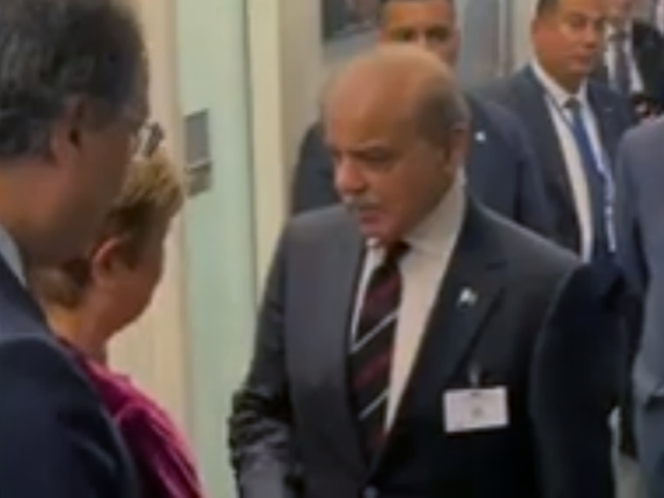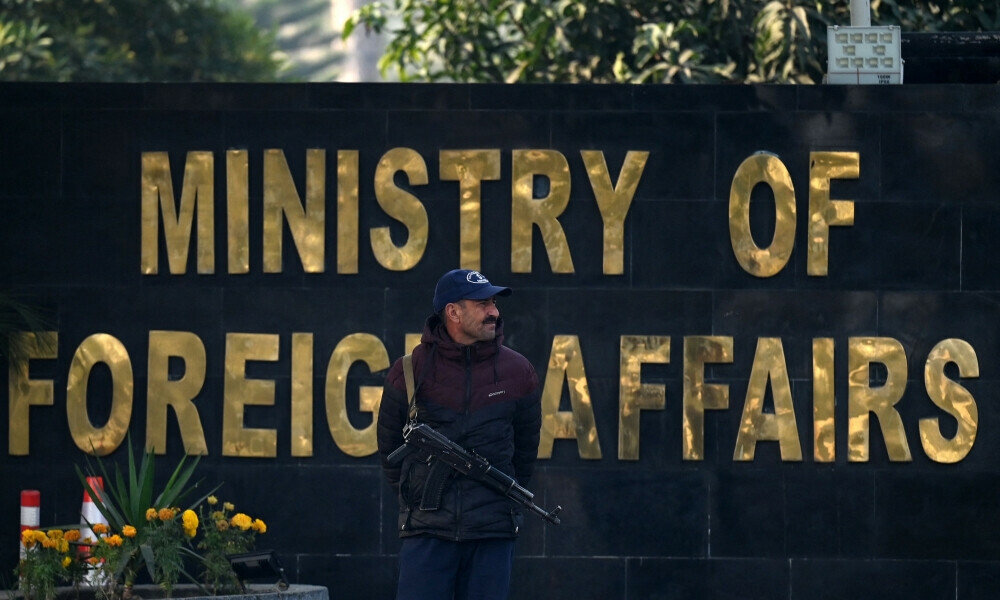Prime Minister Shehbaz Sharif has strongly condemned the recent Israeli military strikes on Iran, expressing Pakistan’s concern over the escalation of violence in the Middle East.
In a statement posted on social media platform X, the Prime Minister stated that Pakistan stands in solidarity with Iran and its neighbors in their pursuit of peace. He voiced deep concern over the latest act of aggression by Israel, warning that such actions threaten regional peace and stability, while also violating the principles of sovereignty and international law.
His condemnation came following a statement from Pakistan’s Foreign Office (FO), which also criticized the Israeli strikes, calling them a dangerous escalation in an already volatile region. The FO’s press release highlighted that Israel’s military actions violated Iran’s sovereignty and territorial integrity, constituting a grave breach of the United Nations Charter and international law. The press release emphasized that such strikes undermine efforts to achieve regional peace and could potentially lead to further instability in the Middle East.
The condemnation from Pakistan’s leadership follows Israel’s military strikes on Iran, which took place early on Saturday. The Israeli Defense Forces (IDF) stated that they were targeting military installations in Iran as a response to Tehran’s previous attacks on Israel. On October 1, Iran launched a barrage of ballistic missiles at Israel, marking its second direct attack in the last six months. Around 200 ballistic missiles were fired during this incident, which escalated tensions across the region and set the stage for Israeli retaliation.
The Middle East has been tense amid speculation about possible Israeli responses to Iran’s aggression. The Israeli military claims that its strikes are in response to ongoing attacks from Iran, which it accuses of continually targeting the State of Israel. The cycle of violence has raised concerns over the potential for a broader regional conflict, drawing international attention to the escalating situation.
Pakistan has taken a firm stance against Israel’s actions, holding the country responsible for the current cycle of conflict. In its press release, the Foreign Office called on the global community to take immediate steps to restore peace in the region. It emphasized the need for the United Nations Security Council (UNSC) to step in and fulfill its role in maintaining international peace and security. The FO specifically urged the UNSC to act against what it termed as Israeli recklessness and criminal behavior, stressing that the international community must not remain silent in the face of such developments.
The Prime Minister’s condemnation aligns with Pakistan’s long-standing policy of supporting the sovereignty and territorial integrity of countries in the region, particularly in the context of disputes involving Israel. The government has consistently voiced its opposition to unilateral military actions that it views as destabilizing, and has urged diplomatic solutions to conflicts in the Middle East.
The Israeli strikes have not only drawn condemnation from Pakistan but have also prompted reactions from other key players in the region. Saudi Arabia, another influential country in the Middle East, strongly condemned the Israeli attack. The Saudi Foreign Ministry expressed its denunciation on X, reiterating the kingdom’s stance against any escalation of the conflict in the region. Saudi Arabia warned that the continuation of such hostilities threatens the security and stability of the entire Middle East, affecting the well-being of countries and people across the region.
Meanwhile, the United States has taken a slightly different approach, calling on Iran to cease its attacks on Israel in order to break the ongoing cycle of violence. Sean Savett, spokesperson for the US National Security Council, urged Tehran to refrain from further military actions, indicating that the onus is on Iran to de-escalate the situation. The US statement reflects its traditional alliance with Israel, while also recognizing the need for calm to avoid further destabilization of the region.
As the conflict between Israel and Iran threatens to spiral into a larger war, Pakistan has reiterated the importance of diplomatic efforts to resolve tensions. Prime Minister Shehbaz Sharif stressed that continued hostilities pose a serious risk to the entire Middle East, and called for a collective effort from the international community to prevent further violence. The Prime Minister’s message echoes a broader sentiment shared by many countries that are concerned about the potential for escalation into a full-scale conflict.
Pakistan’s Foreign Office urged that all parties involved in the conflict adhere to international law and respect the sovereignty of nations. It highlighted that military confrontations only serve to deepen divisions and hinder the possibility of reaching a peaceful resolution. The government has advocated for dialogue and negotiations as the most effective means to address disputes and has consistently voiced support for peaceful solutions in the Middle East.
Both the Prime Minister and the Foreign Office emphasized the crucial role that the United Nations Security Council must play in addressing the current situation. They called on the UNSC to intervene immediately to bring an end to the hostilities and hold Israel accountable for its actions. The press release pointed out that the UNSC’s primary responsibility is the maintenance of international peace and security, and thus, it should not turn a blind eye to violations of international law in the Middle East.
Pakistan’s stance underscores the need for the international community to act collectively to prevent the situation from worsening. It also draws attention to the broader implications of the conflict, which extends beyond Iran and Israel, potentially involving other regional players and influencing global security dynamics.




